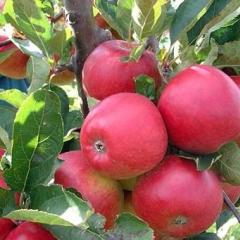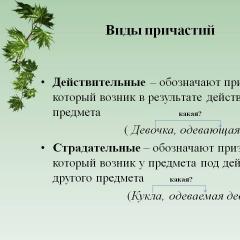Own names Nouns: Examples. Nouns names - own and nominal
Each person uses a few hundred noun in his speech daily. However, not everyone will be able to answer the question of which the discharge owns this or that word: to the names of their own or nominal names, and there is a difference between them. Meanwhile, not only writing literacy depends on these simple knowledge, but also the ability to understand the read correctly, because often, only reading the word, you can understand the name is or just the name of the thing.
what is it
Before you figure out what nouns are called our own, and which are nominal, it is worth remembering that it is.
Nouns are called words responsible for questions "What?", "Who?" and denoting the name of things or Persons ("table", "man"), they vary on decony, childbirth, numbers and cases. In addition, the words belonging to this part of speech are their own / nominal.
Concept of and Own
In addition to rare exceptions, all names nouns belong to the category or own, or nominal. 
Menantic includes the summable names of homogeneous things or phenomena, which may have differences from each other by some features, but will still be called in one word. For example, a noun "toy" is a nominal noun, although it summarizes the names of different items: machines, dolls, bears and other things from this group. In Russian, as in most others, nominal nouns are always written with a small letter.
Nouns are the names of individuals distinguished things, places or persons. For example, the word "doll" is a nominal noun, calling a whole discharge of toys, but the name of the popular brand of Barbie dolls is the name of its own. All own names are written with the title.
It is worth noting that nominal nouns, in contrast to their own, carry a certain lexical importance. For example, when the "doll" says, it becomes clear that we are talking about a toy, but when you just call the name "Masha" outside the context of the nominal noun is incomprehensible, who or what it is a girl, doll, brand name, hairdresser or chocolate.
Ethnonyms
As mentioned above, nouns are their own and nominal. While linguistic scientists have not yet come to a common opinion on the issue of communication between these two dischases. 2 views on this question are common: according to one, between the nominal and its own nouns there is a clear separating trait; According to another, the separation feature between these discharge is not absolute due to the frequent transition of nouns from one discharge in another. Therefore, there are so-called "intermediate" words that are not related to none or nominal nouns, although there are signs of both discharges. These nouns include ethnonyms - words meaning the names of peoples, peoples, tribes and other similar concepts.
Nortional Nouns: Examples and types
In the vocabulary of the Russian language, the most noun nouns. All of them are made to divide into four types. 
1. Specifications - denotes objects or phenomena that can be counted (people, birds and animals, flowers). For example: "adult", "child", "Drozd", "Shark", "ash", "violet". Specific noun nouns almost always have multiple and only shapes and are combined with numerical quantitative: "adult - two adults", "One violet is five violets."
2. Abstract - designate concepts, feelings, items that can not be counted: "Love", "Health", "Sponder". Most often, this type of noun nouns is used only in the singular. If for one reason or another, the noun this species has acquired a plural ("fear - fears"), it loses its abstract meaning.
3. Real - denotes substances that are homogeneous in composition that do not have individual items: chemical elements (mercury), food (pasta), drugs (citrica) and other similar concepts. Real nouns are not amenable to account, but they can be measured (kilogram of macaron). The words of this type of nominal possess only one form of the number: either multiple, or the only one: "oxygen" is the only number, "cream" - multiple.
4. Collective - these are nouns, meaning a combination of the same type of objects or persons, as a single, inseparable whole: "Brotherhood", "Humanity". The nouns of this species are not a responsibility and are used only in the form of the singular. However, you can use the words "little", "several", "little" and the like: many children, how many infantry and others.
Own names Nouns: examples and types
Depending on the lexical value, such types of nouns are distinguished:  1. Anthroponyms - names, surnames, pseudonyms, nicknames and nicknames of people: Vasilyeva Anastasia,
1. Anthroponyms - names, surnames, pseudonyms, nicknames and nicknames of people: Vasilyeva Anastasia,
2. Teony - names and names of deities: Zeus, Buddha.
3. ZONIMS - nicknames and animal nicknames: dog Barbos, cat Marie.
4. All types of toponyms - geographical names, cities (Volgograd), water bodies (Baikal), streets (Pushkin) and so on.
5. Aeronautonyms are the name of various space and aircraft: the East spacecraft, the Mir interior station.
6. Names of works of art, literature, cinema, television programs: "Mona Lisa", "Crime and Punishment", "Vertical", "Yelash".
7. Names of organizations, sites, brands: "Oxford", "Vkontakte", "Milavitsa".
8. Names of holidays and other public events: Christmas, Independence Day.
9. Names of unique phenomena of nature: Hurricane Isabel.
10. Names of unique buildings and objects: Motherland's cinema, Olympic sports complex.
The transition of own to the nominal and vice versa
Because the language is not abstract and constantly influenced both external and internal factors, the words often change their discharge: own transitions to nominal, and nominal nucleation goes into their own names. Examples of this are found quite often. So the phenomenon of the nature of the "frost" - from the nine turned into its own noun, the surname of frost. The process of transition of nominative to its own is called onminomization.
At the same time, the name of the famous German physics was the first to reveal X-ray radiation, in the conversational speech of the Russian language, has long turned into the name of the study of something with the help of the "X-ray" emission. Such a process is called appeal, and such words - eponyms.
How to distinguish
In addition to semantic differences, there are also grammatical, allowing clearly distinguishing the names of nouns their own and nominal. Russian language in this regard is quite practical. The discharge of nominal nouns, in contrast to their own, as a rule, has forms and multiple and sole numbers: "Artist - Artists." 
At the same time, another discharge is almost always used only in the singular: Picasso - the surname of the artist, the only number. However, there are exceptions when you can use a multiple number your own nouns. Examples of this names used initially in the plural: the village of large boars. In this case, these own nouns are often devoid of the only number: Mountains Carpathians.
Sometimes their own names can be used in a plural if they denote different levels or phenomena, but with identical names. For example: in our class three Ksenia.
How do you spell
If with writing noun nouns, everything is quite simple: they are all written with a small letter, and otherwise you should stick to the usual rules of the Russian language, then another discharge has some nuances to know that you need to correctly write your own nouns. Examples of incorrect writing can often be found not only in notebooks of unrelated schoolchildren, but also in documents of adults and solid people.

To prevent such errors, you should learn a few simple rules:
1. All own names are written with the title, especially if it concerns the nickname of legendary heroes: Richard is a lion heart. If the name, the surname or geographical name consists of two and more nouns, regardless of whether they are written or through a hyphen, each of these words should begin with a capital letter. An interesting example may be the nickname of the main scoundrel of the epic about Harry Potter - Dark Lord. Fearing to call him named, the heroes called the evil wizard "The one who can not be called." In this case, all 4 words are written from large letters, as it is a nickname character.
2. If articles, particles and other service particles are present in the name or title, they are written with a small letter: Albrecht background Gref, Leonardo da Vinci, but Leonardo di Caprio. In the second example, the "di" particle is written with a capital letter, as in the original language it is written to the LEONARDO Dicaprio surname. This principle applies to many names of their own foreign origin. In the eastern names, indicating the social position of the "Bay" particle, Zul, Zade, "Pasha", and the like, regardless of among the words, they stand or in the end are written with a small letter. The same principle applies to writing its own names with particles in other languages. German "Background", "Tsu", "AUF"; Spanish "de"; Dutch "Van", "Ter"; French "Dez", "Du", "De La".
3. In the beginning of the name of foreign origin, the particle "San-", "Saint-", "Saint-", "Ben-" are written with the title and through Defis (Saint-Zhemmen); After about, there is always an apostrophe and the next letter - the title (O'Henry). The "Mac-" particle should be written by a turn of the hyphen, however, it is often written in a punch due to the approach of writing to the original: Mac-Kinley, but Macmene.
Obviously, once with this rather simple topic (what is the name noun, types of nouns and examples), you can even save yourself from stupid, but rather unpleasant mistakes in spelling and need to constantly look into the dictionary to check yourself.


